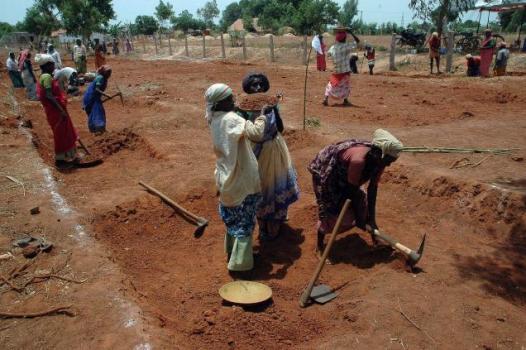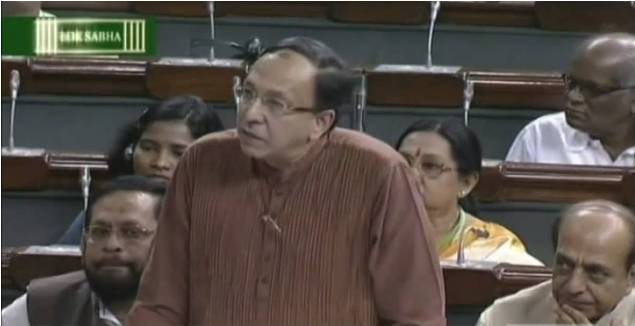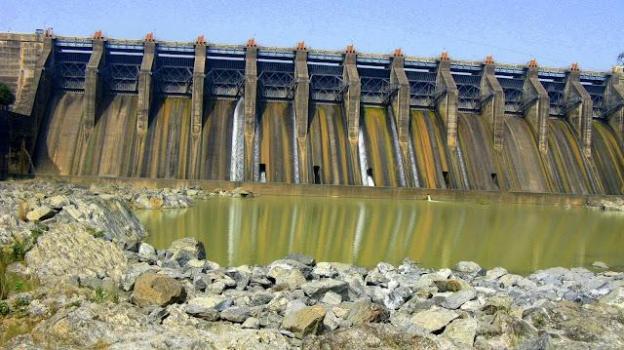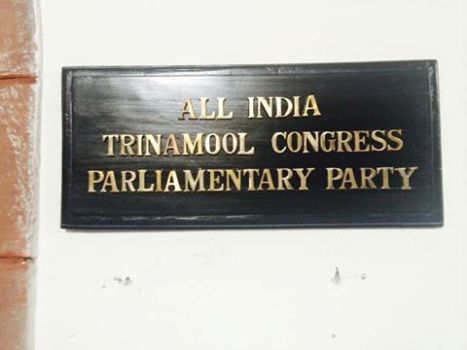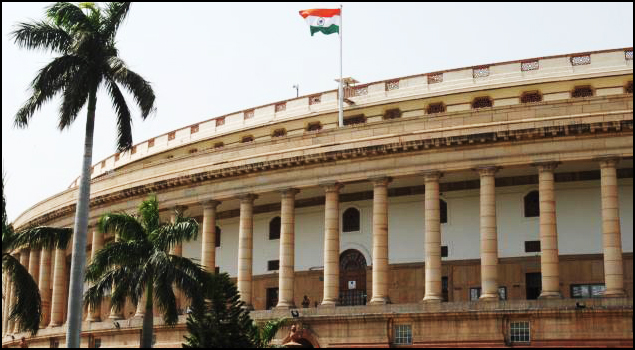Leader of the party in Lok Sabha, SudipBandyopadhyay today spoke in the Lok Sabha about devising a mechanism to dealwith the increasing incidents of communal violence in the country. He said theissue was not a fight between us and them but a consensus must be evolved bythe lawmakers to deal with the problem.
The main ethos of India lies in unity indiversity. We believe in secularism, he said. He cited the National Anthemwhich portrays the motto of unity in diversity. “We stand for all -irrespective of caste, creed and religion – and we want betterment of thecountry,” Mr Bandyopadhyay said.
He demanded that the Home Minister give anassurance that communal tension will not be tolerated in the country. “Communalviolence can have dangerous effects. We should be cautious from the verybeginning. Government of India must remain vigilant and alert to preventcommunal violence,” added Mr Bandyopadhyay.
He also said that in recent times, therehave been instances where communal violence was incited in States which areknown to be peaceful.
The Leader of the party in Lok Sabha alsosaid that lawmakers of the country should try to evolve a mechanism to preventcommunal violence in the country and make all-out efforts to ensure allsections of the society are protected.
Here is the full transcript of his speech:
We are discussing today the need to evolve and effective mechanism todeal with the incidence of communal violence in the country. It is not the purposeof the debate to fight each other. The purpose is to evolve some mechanism. MrKherge ji initiated the discussionand Adityanath ji responded up tocertain extent that we should all come to the sense that we are the firmbelievers of the principle of secularism, communal harmony and integrity of thecountry. We also feel that the main ethos of India is unity in diversity.
We sing the song “Nana bhasa nana motnana poridhan, bibidher majhe dekho milon mohan”. That means despite manylanguages, many dresses and many opinions, we are the firm believers of unityin diversity.
Sir, our National Anthem says, “Punjab, Sindhu, Gujarat, Maratha, Dravid,Utkala, Banga, Vidhya, Himachal, Yamuna, Ganga, uchhala jaladhi taranga”. Thisis the spirit and we Indians owe our allegiance to the Parliamentary Democraticsystem where every religion, every person has his right to speak his ownopinion, his own thought, his own philosophy. But during the discussion itappears like they are speaking for the Hindus and here some are sitting for theMuslims. But the picture is not that. The whole House stands for all –irrespective of the caste, creed and religion – and works for the betterment ofthe country.
Sir, this is a country where Iqbal sang “Sare Jahase Achha, Hindusthan Hamara”. We firmly feel that this isthe sentiment and spirit we should try to spread. We should see that this loveand sense of security among our country prevails very much.
Sir, somebody is minority here. They may be majority in some otherplaces. If we consider the whole of the world, Christians and Muslims are themajority on a large scale. In some places in our country they are minorities. Minoritydoesn't mean only Muslims but Sikhs, Jains, Parsis also. As the Government runsthe country, the primary responsibility rests with them; they must see to itthat communal violence does not take place in the country.
Rajnath Singh ji – a veryresponsible person – as the Home Minister of the country should always try togive assurances that communal violence should not be allowed to take place inany way. Provocations certainly create communal tension.
Sir, Bengal is known as a very secular state. But nowadays communaltensions are being incited in some corners. I would also request the hon. HomeMinister to find out why communal incidents are being incited in States whichare known to be peaceful States without any communal violence. Such incidentsshould be stopped at the very initial level.
Adityanath ji said some Imamsare getting some benefits. He can make a claim that the priests too should getsome wages. That can be done. Why they are getting it? That should not be thetarget of the discussion, by which a sense of insecurity will prevail. They canclaim that priests should also be given some assistance, some financial support.This will send out a good sense and I think that would be the correct line.
Sir, if we are united, peace in India can never be challenged. We haveseen how dangerous communal violence can be, how it can spread within a state,and it’s effect can also expand throughout the country. So we should be totallycautious from the very beginning. Sir, what I want to request, what I want tosay to the hon. Rajnath ji, that the government of India must remainalert, cautious and vigilant to prevent communal tension, communal violence,otherwise safety and security of the common people will totally be underthreat. And the secular fabric of this great country will be challenged. I hopeno political party is asking for this situation and whoever is in power, as I wastelling, they have major responsibility to look into it.
Yesterday, I was listening to the speech of the UPA chairperson, the hon.Sonia Gandhi ji, at Thiruvananthapuram. She was giving a report thatmany communal incidents have happened; I would request Rajnath Singh ji totake this allegation against this present government seriously. If the numbergoes up to 400, 500, 600 and above, then why will the government not takeresponsibility and assure the House that they would investigate all the allegationswhich have been made. Adityanath ji was telling that a Supreme Courtjudge should be authorised to look into the matter. Nobody should oppose thisif the main Opposition party be in favour of a Supreme Court judgeinvestigating, and the government agrees.
We are the lawmakers of this country. So we should take an all-outeffort to see that our country is totally protected, that all sections ofpeople belonging to different castes, creed and religion are living in peace, withharmony, with love for each other. When Jawaharlal Nehru was the Prime Minister,he spoke about international brotherhood and international solidarity; that wasthe ethos of our Indian culture, which we spread throughout the world. So whenwe are the believers of such type of international brotherhood andinternational solidarity, why should we lack that in our own country by whichwe can live together happily.
Sir, when Dussehra takes place, Hindus and Muslims embrace andgreet each other. When Christmas takes place, we embrace Christians and say‘Merry Christmas’. When Eid comes, Hindus and Muslims embrace each other andsay ‘Eid Mubarak’. So this is the sentiment of this country, and we should tryto protect it. And we are believers of the slogan Mera Bharat Mahan.
I will not allow the discussion to go in such a manner that the spiritof the House and the spirit of today’s discussion is diverted this way or thatway, so that when we are trying to find out a solution, it becomes more complicated,and the situation is worsened from what is existing now. We have anotherspeaker who will also speak, so I conclude now with the appeal that thelawmakers of this country should try to evolve such a mechanism by which we canensure that India does not face any communal violence in the near future or inthe coming days.

